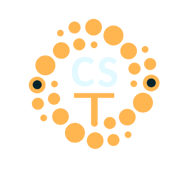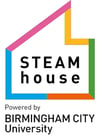Hi, I’m Mark, author of the Cell Suppression Theory of cancer. To be clear, I never intended to write a new theory. After being diagnosed with a rare sarcoma, I just wanted to understand the role of DNA mutations and lower my risk of recurrence. But when a close friend was later diagnosed, everything changed.
What began as personal research led to an unexpected discovery - and a troubling realization: our well-meaning clinicians are struggling to treat the disease effectively because the established theory on which conventional treatments are developed, is potentially incorrect - meaning, our clinicians may unwittingly be targeting the wrong feature of the disease.
With that said, the Cell Suppression Theory is the first to provide a plausible explanation for how natural compounds selectively kill cancer cells - and the first to account for all 10 cancer hallmarks rendering it the most accurate cancer theory currently available. This breakthrough could offer patients a deeper understanding of cancer and potentially lead to better treatment outcomes. The only way to effectively treat any disease, is to successfully identify it's origin.

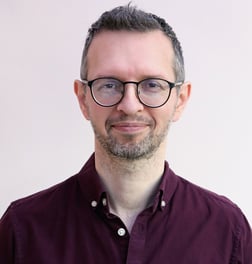
Our multi-award-winning author
Though I’m don't have a formal medical education, my background in graphic design gave me the tools to think creatively and question many assumptions that appear to be hindering progress. In design, we’re trained to discard first ideas, embrace failure, and solve complex problems with fresh thinking. This mindset helped me break free from conventional constraints and explore new possibilities.
My journey - from curious outsider to award-winning author and speaker - shows that a creative, objective, evidence-based approach to problem solving can lead to groundbreaking insights. The beauty of my humble background meant that I was uniquely placed to translate my theory, and the science of cancer, in everyday language to make it accessible to all, because understanding cancer shouldn't be limited to scientists. Sometimes, seeing through a different lens makes all the difference.
While cancer is commonly presented as a genetic disease, recent scientific data suggests this view may be flawed - something every patient should know before choosing a treatment path.
Through my research, I discovered at least seven competing theories of cancer. None of which, including the widely accepted DNA theory, could fully explain all 10 of the Hanahan and Weinberg Hallmarks - the key benchmarks for assessing the validity/accuracy of any cancer theory. This means the true cause of cancer remains unknown. Since treatments are based on these unproven theories, it’s important to examine each one and its related therapies carefully. The more accurate the theory, the more effective its treatment is likely to be.
Recognizing these gaps, many are turning to complementary and alternative therapies. Some individuals, like Dr. Nasha Winters, Professor Ben Williams, and Jane McLelland, have survived terminal diagnoses using such approaches and have become pioneers progressing our understanding despite a confusing level of resistance from conventional scientists and clinicians. While I can partly understand this resistance - pre-clinical evidence is not sufficient, human clinical trials are needed - and while there appears to be abundant anecdotal evidence supporting alternative and complementary approaches, the exact mechanisms that underpin these success stories remains unclear - seeding doubt and skepticism. This uncertainty drove me to develop a theory that offers a clearer understanding that can directly benefit cancer patients by translating the science of cancer into simple understandable terms.


"Logic will get you from A to B. Imagination will take you everywhere."
Albert Einstein
"Sometimes it is the people no one imagines anything of, who do the things that no one can imagine."
Alan Turing
"I think this piece of work is going to be landmark in terms of how we understand and deal with cancer, it's up there with Jane McLelland's work and Professor Seyfried's Metabolic Theory."
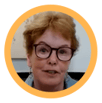

Patricia Peat
Oncology nurse and CEO of Cancer Options
Four years in to my research something clicked. A pattern began to emerge. A different story—one that connected the dots in ways I hadn’t seen before. It became the foundation of what I now call the Cell Suppression Theory (CST): a new model that views cancer not as a genetic accident caused by 'bad luck', but a reversible metabolic survival response to a novel intracellular fungal infection.
Within this framework, cancer is the consequence of suppression, the hijacking of the cell machinery by a pathogen—not cellular malfunction. This is not just another theory it's a complete paradigm shift in how we view cancer, it's the only theory that views cancer through this suppressive lens.


Our multi-award-winning author
This is significant because it is the first theory to offer a unified explanation for all 10 of Hanahan and Weinberg’s cancer hallmarks—the metric by which the accuracy of a cancer theory is measured. And uniquely, it also explains how natural compounds, metabolic therapies, and certain complementary approaches appear to selectively kill cancer cells—something patients like Jane McLelland, Professor Ben Williams, and Dr. Nasha Winters have demonstrated in practice, often against extraordinary odds.
But I’m not a doctor or a scientist by training. My background is in graphic design.
That might seem irrelevant, but it gave me something invaluable: the ability to think creatively, to question convention, and to look at complex problems with fresh eyes. In design, we’re taught to discard our first ideas, embrace failure, and explore every angle of a problem until something new emerges. That mindset helped me do something the cancer field desperately needed: to see the disease through a different lens
How I Came to Challenge Everything We Think We Know About Cancer
It started the way it does for far too many people—with a loved one, a diagnosis, and a feeling of helplessness that you can’t quite put into words. Years ago, I was told I had a rare form of sarcoma. That moment flipped my world upside down. At first, all I wanted was to understand what was happening in my body—to make sense of the science behind my diagnosis, and lower my chances of it coming back.
But when my close friend Sam was diagnosed with cancer too, and later passed away after a year of conventional treatment, something shifted in me. Angered by her passing and vowing not to let her die in vain I developed the motivation and desire to want to know more - cancer had my attention, it was well and truly in my cross-hairs, and i wasn't about to let it slip away that easily.
One thing led to another, and over the next eight years I studied thousands of peer-reviewed papers from cancer theory, nutrition and microbiology to biochemistry, immunology and infectious disease to name a few. What started as personal research soon uncovered something unexpected—the origin of cancer was still up for debate - it’s a mystery with many competing theories trying to explain it. At least seven separate models exist, each offering a different explanation—and more importantly, each leading to different treatment approaches. Even the mainstream "DNA mutation" theory, which underpins most conventional therapies, can't explain all the known features of cancer.
That hit me hard. Because it means many patients are being treated according to an assumption—not a proven cause confirmed to be driving the disease.
But when a close friend was later diagnosed with cancer too, something shifted in me. I knew I had to go deeper.
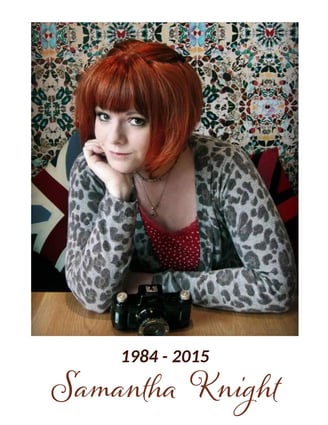

"Logic will get you from A to B. Imagination will take you everywhere."
Albert Einstein
"Sometimes it is the people no one imagines anything of, who do the things that no one can imagine."
Alan Turing
"I think this piece of work is going to be landmark in terms of how we understand and deal with cancer, it's up there with Jane McLelland's work and Professor Seyfried's Metabolic Theory."


Patricia Peat
Oncology nurse and CEO of Cancer Options
In February 2023, my theory was put to the ultimate test. I presented it live to a panel of 10 international cancer experts during a six-hour event called Cancer Through Another Lens, in front of a global audience of over 200 medical professionals. The theory was scored 7.4 out of 10 for validity and merit—an unprecedented result for a citizen scientist offering a radically new model.
Today, I’m the author of The Cancer Resolution?—a multi-award-winning book that simplifies cancer science and empowers patients to understand their options. My mission is to help patients see the full picture before choosing a treatment path—not just the version they’re usually told.
Because the truth is, when you’re diagnosed with cancer, you don’t just need treatment. You need clarity. You need language you can understand. And above all, you need to know why a treatment works—not just that it exists.
The Cell Suppression Theory offers that “why.”
And if I’ve learned anything through this journey, it’s that sometimes the people furthest from the system are the ones best placed to question it.

The evolution of Mark's revolutionary new theory
THEORY CREATION - August 2013 - October 2021
Mark Lintern finalises his groundbreaking theory - the first to fully explain all 10 recognised hallmarks of cancer; unifying existing theories, and addressing the gaps in our existing understanding.
THEORY VALIDATION - February 2023
Mark's theory is validated during the 'Cancer Through Another Lens' event where a panel of 10 international cancer experts were assembled to critique his work. This critique took the form of a six-hour webinar and was held in front of a live audience of just over 200 medical professionals, who voted overwhelmingly to acknowledge the significance of his theory.
THEORY PUBLICATION - May 2023
Mark publishes his theory within the book 'The Cancer Resolution?', acheiving a milestone by successfully translating the science of cancer into layman's terms.
LITERARY AWARD RECEIVED - November 2023
Providing recognition of Mark's accomplishments, his revolutionary work won a literary award for best non-fiction book in the 'health' category within the Best Indie Book Award competition. The award affirms that Mark has acheived his main objective - to provide cancer patients with revolutionary insight that is written in a manner accessible to all.
RADIO AWARD RECEIVED - May 2024
By public vote Mark's book wins the UK Health Radio annual award in the oncology category, after his book was nominated earlier in the year.
2nd LITERARY AWARD RECEIVED - October 2024
Mark's book wins the New York City BIG BOOK Award - a prestigious literary award that is open to both professionally published and self-published authors. Thus illuminating the significance, uniqueness and readability of Mark's profound work and its potential to benefit humanity.
Photo by Tadej Skofic on Unsplash

© Copyright Mark Lintern 2023. All rights reserved. Established: June 2023
